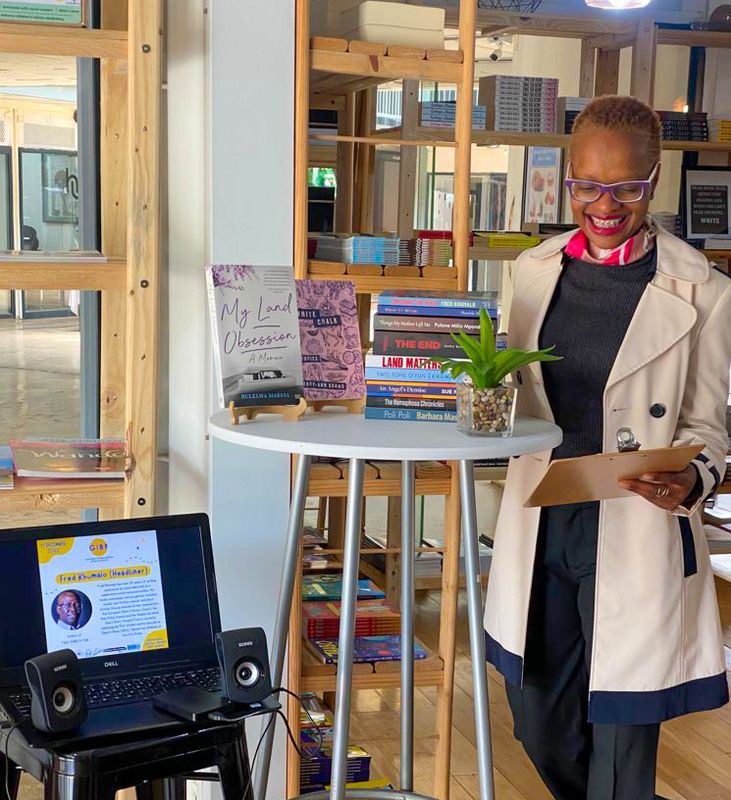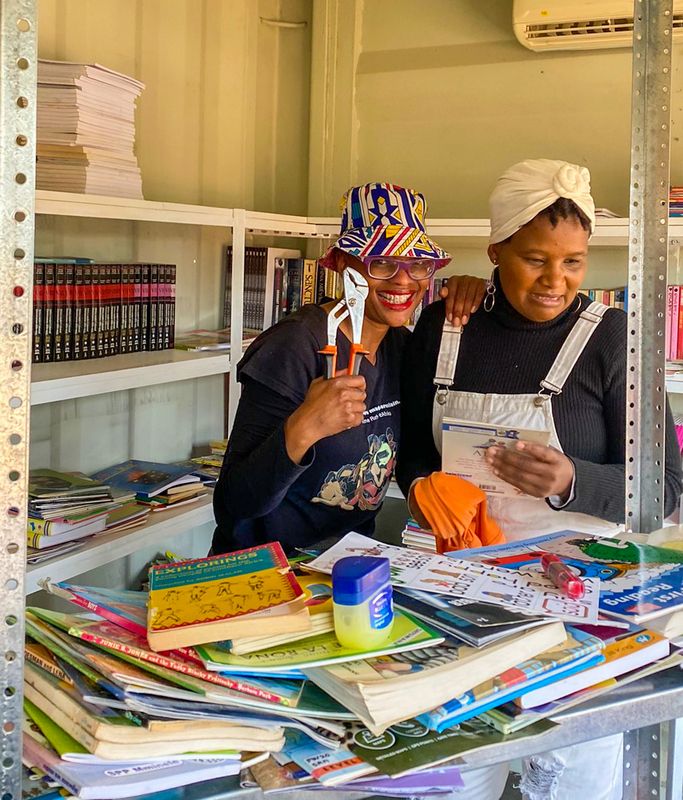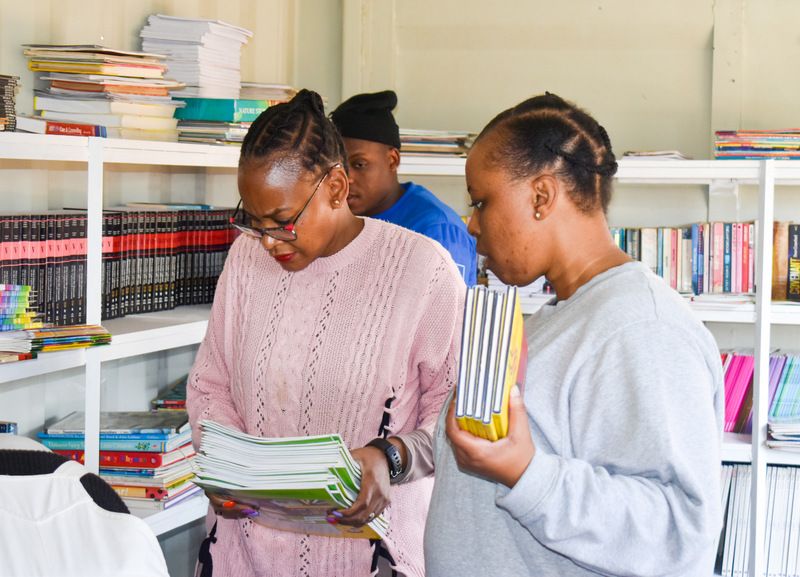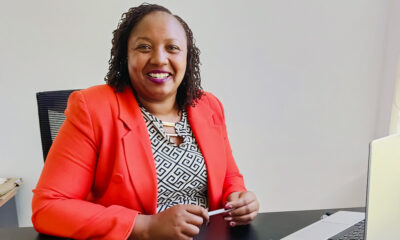Scoop
This South African author & publisher is on a mission to get everyone reading
By Bonface Orucho for bird story agency

Lorraine Sithole credits her passion for books to a family tradition instilled in her by her grandmother decades ago. This meant that early childhood literary success was celebrated and reinforced.
“One of the most profound moments for me when I was in primary school was when I was awarded an English book written by a local author,” she said.
Being recognised and awarded at a time when most of her peers were communicating exclusively in their mother tongue sparked a sense of ownership of her second language. Since then, she’s been unstoppable. Years of networking, reading, and writing have bolstered Sithole from a passionate, self-sufficient reader to an activist aiming to pass on the same attitude and love for books to different population groups.
Today, the reading activist, author, and book club founder is on a mission to cultivate a culture of reading for pleasure among all South Africans. Reading for pleasure is “the most inexpensive hobby,” said Sithole. It’s also something that doesn’t require other people.
“You don’t need to have a group of people with you in order to enjoy reading,” she explained.
From women to children, Sithole has organized programs that assemble different groups in South Africa to read and discuss literature. “From my childhood, many of the book-related programmes I have been involved in have featured stories and creators of stories from the home soil,” she said.
Her legacy project, however, is the famous Bookworms Book Club, an all-women book club based in Johannesburg and founded in 2011.
Besides reading and discussing African books, the group meets monthly to undertake community-based programmes on community issues, including mental health, conservation, and climate awareness, while encouraging community members to read for pleasure.

“At the club, we invite you to read 11 times a year besides holding a book discussion after voting for books. We are so much interested in intergenerational dialogues,” she explained.
The group under Sithole seeks to tell the historical events that define their country, from “the big march of 1956” (the Women’s March on August 9, 1956, in Pretoria, South Africa, to protest the introduction of Apartheid pass laws for black women in 1952) to the efforts advanced by statesmen such as Nelson Mandela. Intergenerational authors are invited to speak about their experiences in historical events at book club sessions.
“We need our children and the community to appreciate how far we have come, what has changed, and what needs to be done so that we can better care for the lives of our children,” she noted.
“This year we had a special session where one of the original women who led the 1956 March attended and spoke to us about her aspirations as a young woman in 1956,” she added.
Relentless and committed to making change through books and reading, Sithole has organised the Gauteng International Book Festival, slated for December 11, to take place in the historic township of Soweto.
The founders, most of whom originally hail from Soweto, wanted a location where “ordinary people would not go for a book festival.”
“Soweto hosted the historical fathers of our continent, from Nelson Mandela to Desmond Tutu. There is a rich vein of history that needs to be constantly told so that we do not risk forgetting their efforts,” Sithole explained.
“We also went to a place that is willing to accommodate our offerings. This is our debut festival so our program is a one-day event with a small budget of R100 per adult with free entries to children,” she added.
Themed ‘Unlimited Africa,’ the festival includes book discussions and analyses from authors and novelists.
Dudu Busani-Dube, author of the “Hlomu” series, and Fred Khumalo, a South African journalist, author and holder of the European Union Literary Award, will headline the festival. South African writer and filmmaker Nokuthula Mazibuko Msimang will give the keynote address.

Attendees will also participate in an ‘all indigenous’ tree-planting session, besides experiencing a live cooking session where a wide variety of Soweto’s popular local delicacy ‘Shisanyama’, grilled meat, will be served.
As Sithole propagates the culture of reading for pleasure in South Africa, she acknowledges there are reading culture gaps across the continent that require stakeholders – especially funding institutions – to consider allocating more resources to programs that will bridge the gaps.
“The latest literacy statistics in South Africa are from 2017, where more than half of school-going children could not read for meaning. This is dangerous because it means they do not understand what they are reading,” she noted.
“That is why at the book club we now have children in our program and it humbles my heart when parents send me messages of gratitude after their children go home with a different book every Friday,” she said.
She, however, believes if more funding can be pumped into reading programs, it will be easier for book fair organizers like herself because “there is a lot untapped potential in African literature”.
“We are even seeing books coming from the diaspora about Africans capturing and retaining some essence of Africanism and it is all because of the work literary artists from the continent have done,” she explained.
“In South Africa, young people are taking the industry by storm, they are taking up the mandate to write their stories with the freshness of their age and pushing through the system. It is heartwarming,” she said.





















